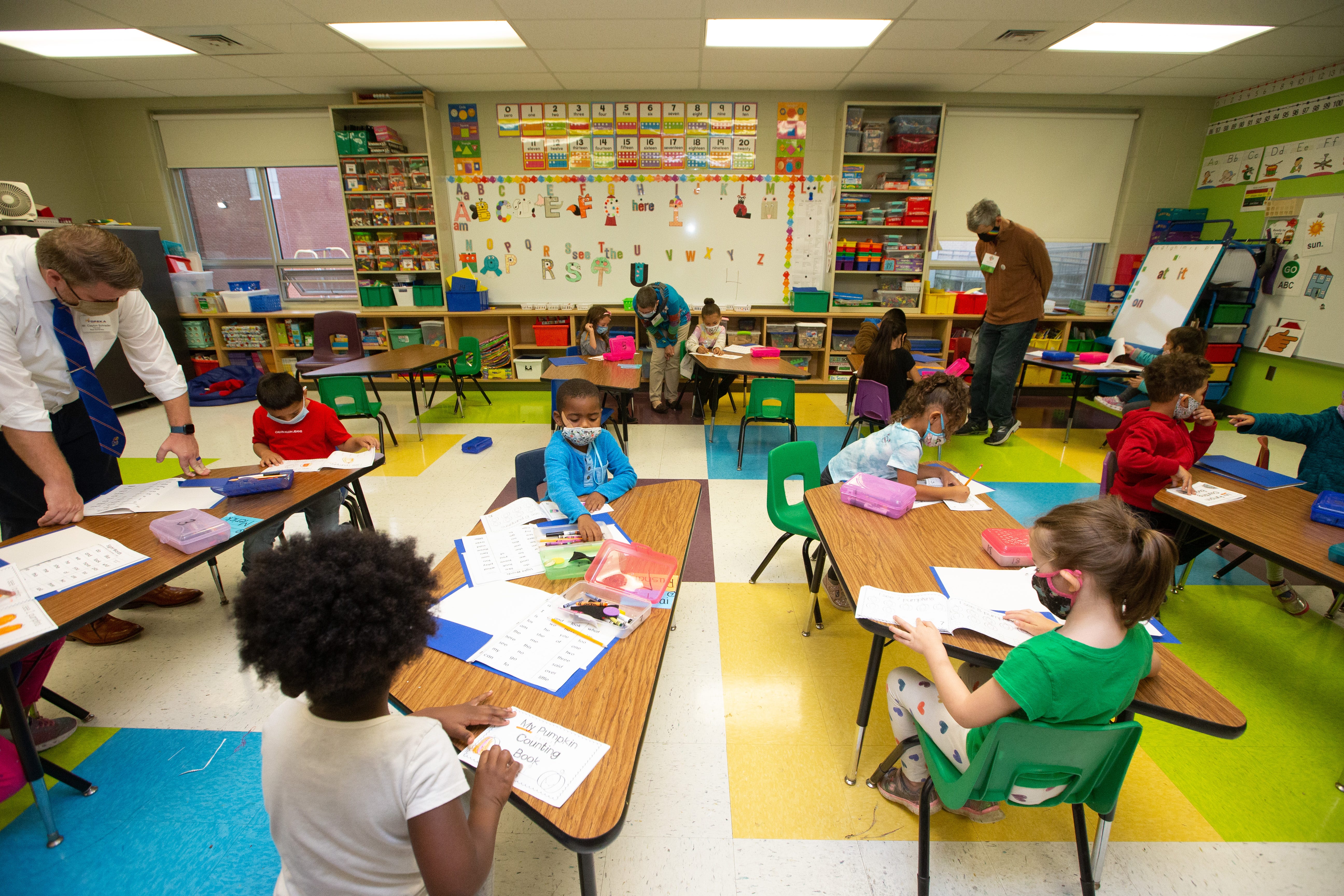Primary Science Tuition Singapore for Building Confidence in Science
Primary Science Tuition Singapore for Building Confidence in Science
Blog Article
Exploring the Different Training Techniques in Primary Science Education And Learning Today
Inquiry-based learning, hands-on experiments, and the assimilation of innovation are redefining just how instructors involve young minds. Additionally, collaborative approaches and set apart instruction are being used to cater to the varied requirements of trainees, enhancing both interaction and understanding.
Inquiry-Based Discovering
Inquiry-Based Discovering (IBL) is a pedagogical approach that encourages pupils to explore clinical ideas via doubting, investigation, and hands-on trial and error. This approach stresses the duty of trainees as energetic individuals in their discovering, advertising crucial reasoning and analytic skills. By involving with real-world questions, students end up being curious and motivated, which boosts their understanding of clinical concepts.
In IBL, instructors work as facilitators, directing pupils as they browse their questions as opposed to providing info directly. This student-centered method allows for distinction, accommodating various discovering speeds and designs. Trainees develop skills in formulating theories, designing experiments, and assessing data, which are critical for scientific literacy.
Additionally, IBL fosters cooperation among pupils, encouraging them to share concepts and searchings for. This collective questions advertises social skills and a sense of neighborhood within the class. The process of questions urges strength, as trainees discover to embrace failing as a tipping rock toward understanding.
Hands-On Experiments
Hands-on experiments are an important component of effective scientific research education and learning, complementing the principles of inquiry-based understanding. These experiments permit trainees to engage straight with clinical ideas, cultivating a much deeper understanding through experiential understanding. By manipulating products and observing end results, young students can grasp abstract concepts in substantial means.
Such activities promote crucial thinking and problem-solving skills, as students hypothesize results, conduct experiments, and assess results. This process urges them to ask inquiries, fine-tune their understanding, and develop a scientific attitude. Moreover, hands-on experiments can be tailored to varied learning designs, making certain that all students have the opportunity to engage meaningfully with the web content.
Additionally, hands-on experiments frequently encourage collaboration amongst peers, promoting synergy and communication abilities. Operating in teams makes it possible for pupils to share ideas, go over searchings for, and find out from one another, which enhances their general instructional experience.
Integrating hands-on experiments right into the key science educational program not only improves the discovering atmosphere yet additionally grows a lifelong rate of interest in science. By proactively getting involved in their education and learning, pupils are more probable to establish an enthusiasm for scientific query that extends past the classroom.

Modern Technology Integration
Integrating innovation into primary science education has actually ended up being progressively crucial in cultivating trainee involvement and improving finding out end results. Using electronic devices, such as interactive simulations, online laboratories, and academic software program, provides pupils with chances to explore clinical principles in innovative ways. These resources facilitate a deeper understanding of complex subjects by permitting students to envision and adjust variables that would certainly be unwise in a traditional classroom setting.
Moreover, modern technology integration encourages individualized discovering experiences. Pupils can progress at their very own visit this website speed, revisiting difficult concepts with multimedia resources, which deal with different discovering designs. This flexibility not just supports private growth but additionally grows a sense of freedom in students.
In addition, modern technology acts as a bridge to real-world science, linking students with existing research study and specialist payments. Access to on the internet databases and scientific journals widens students' perspectives on scientific query and cultivates crucial assuming abilities.
Collaborative Learning
Collaborative knowing plays an essential duty in main scientific research education by cultivating teamwork and interaction skills among pupils. This strategy urges learners to work together, share expertise, and take part in problem-solving, which improves their understanding of scientific concepts. By joining team tasks, students discover to verbalize their concepts, pay attention to varied point of views, and discuss options, all of which are important skills in both real-world and scholastic contexts.

Research study shows that collaborative knowing can bring about raised motivation and interaction in science subjects, as trainees find satisfaction in common experiences (primary science tuition Singapore). Furthermore, this approach prepares students for future collaborative endeavors, equipping them with the skills essential for effective teamwork in higher education and learning and professional environments. Ultimately, embracing collaborative understanding in key science education and learning can considerably enhance the learning experience and promote a much deeper understanding of scientific query
Separated Guideline

Distinguished direction can manifest in different ways, such as varying the material, processes, or products of learning. Instructors might utilize tiered projects that provide differing levels of intricacy, enabling students to work at their respective preparedness levels. Additionally, flexible grouping techniques can assist in cooperation among students with various capacities, promoting peer knowing.
Evaluation plays a crucial role in this technique, as it informs over at this website instruction and assists educators comprehend each student's one-of-a-kind demands. Developmental assessments, such as monitorings and quizzes, can guide instructors in adjusting their methods to improve finding out end results. primary science tuition Singapore. Ultimately, by implementing set apart guideline in main scientific research education, instructors can grow a much more equitable and efficient understanding atmosphere, empowering all students to reach their complete capacity in recognizing clinical sensations
Final Thought
In recap, the diverse training strategies in main scientific research education, consisting of inquiry-based learning, hands-on experiments, modern technology assimilation, collective understanding, and separated instruction, collectively contribute to a much more reliable understanding atmosphere. These approaches advertise critical thinking, problem-solving skills, and a deeper understanding of clinical concepts. By applying these techniques, teachers can create appealing and supportive class that attend to the diverse needs of pupils, inevitably cultivating a lifelong passion in science and improving academic achievement.
Inquiry-Based Learning (IBL) is a pedagogical strategy that encourages trainees to discover scientific concepts through wondering about, examination, and hands-on experimentation.Collaborative learning plays a vital function in key science education by promoting synergy and interaction skills amongst pupils.Research study suggests that joint knowing can lead to enhanced inspiration and interaction in scientific research subjects, as students discover pleasure in common experiences.In cultivating a comprehensive discovering setting, distinguished instruction arises as an essential technique to suit the varied needs and abilities of pupils in primary science education. Inevitably, by implementing distinguished direction in key science education and learning, instructors can cultivate a much more efficient and fair understanding atmosphere, equipping all students to reach their complete capacity in comprehending scientific sensations.
Report this page